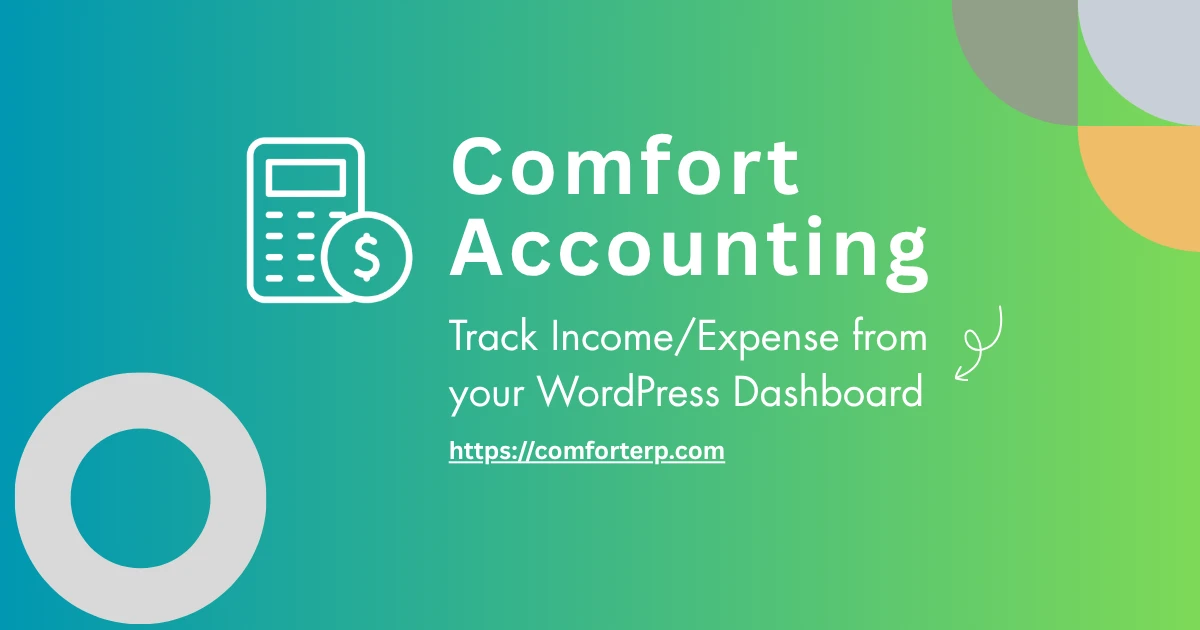Running a business on WordPress? You need a reliable accounting plugin to manage finances, invoices, taxes, and reports seamlessly. In 2025, several powerful solutions exist—but one newcomer stands out: Comfort Accounting. Here are the top 5 picks, with a deep dive into why Comfort Accounting leads the pack.
1. Comfort Accounting – The All-in-One Solution for WordPress
Comfort Accounting is the newest yet most comprehensive accounting plugin for WordPress in 2025. Designed for small to medium businesses, it integrates effortlessly with WooCommerce, Easy Digital Downloads, and other WordPress plugins while offering enterprise-level features.
Key Features:
- Agency Based – Multiple agency/brands accounting can be managed via same plugin in single site.
- Expense Tracking – Log and categorize expenses with receipt uploads.
- Tax Management – Auto-calculate VAT, GST, or sales tax with region-specific rules.
- Multi-Currency Support – Handle transactions in 50+ currencies with real-time exchange rates.
- Financial Reporting – Profit/loss statements, balance sheets, and cash flow analytics.
- WooCommerce Integration – Sync orders, refunds, and customer data automatically.
- Frontend Dashboard – Frontend dashboard for agency to do everything from frontend.
- Reports – Generate statements and other reports, save as excel, pdf.
Unlike older plugins, Comfort Accounting combines simplicity with depth—perfect for non-accountants while offering advanced tools for professionals. Its modular design lets you pay only for the features you need.
Get Comfort Accounting Now2. WP ERP – Enterprise-Grade Financials
A long-time favorite, WP ERP offers HR, CRM, and accounting modules. Its accounting features include:
- Income/expense tracking
- Bank reconciliation
- Tax reporting
Downside: Steeper learning curve; lacks Comfort Accounting’s intuitive UI.
3. QuickBooks for WooCommerce
For businesses tied to QuickBooks, this plugin syncs WooCommerce data with QuickBooks Online. Features:
- Real-time order syncing
- Automatic tax calculations
Downside: Requires a QuickBooks subscription; limited standalone features.
4. Sprout Invoices
Sprout Invoices focuses on invoicing and estimates but includes basic accounting:
- Time tracking for billable hours
- Client payment portals
Downside: Not a full accounting suite like Comfort Accounting.
5. Zoho Books Integration
This Zoho Books connector syncs WordPress with Zoho’s cloud accounting platform. Offers:
- Expense tracking
- Multi-user collaboration
Downside: Dependent on Zoho’s ecosystem; no native WordPress dashboard.
Why Comfort Accounting Wins in 2025
While all these plugins have merits, Comfort Accounting stands out for its:
- Native WordPress integration (no third-party dependencies)
- Affordable pricing (no monthly SaaS fees)
- One-click reports (unmatched usability)
Whether you run an eCommerce store, freelancing business, or agency, it’s the most future-proof choice.
Bonus: Comfort Inventory & Invoice
You may be need to create invoice and send to customer as well as take payments. Comfort Inventory and Invoice for WordPress can help to achieve this.






